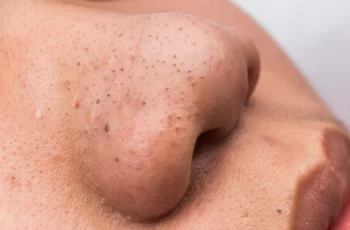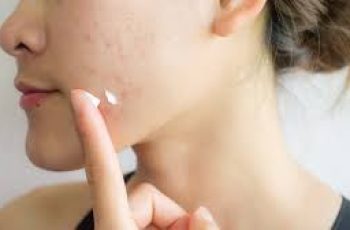
Aloe Vera as A Skin Care Ingredient
Aloe vera in skin care products
Aloe vera is a succulent plant that biologically acts as a salicylate.
It has soothing and calming properties and is considered an anti-inflammatory and humectant ingredients.
Aloe is good for your skin if you have sensitive skin. This is why aloe is a popular cosmeceutical ingredient.
You can drink aloe juice, apply the juice from the plant to your skin, or use skin care products that contain aloe.
What are the Benefits of Aloe Vera on Skin?
Aloe’s natural anti-inflammatory and antioxidant abilities make A. vera ideal for soothing sensitive skin.
Aloe is also a humectant that helps hold water on the skin’s surface.
Find skin care products with aloe:
Aloe vera is used to treat:
Acne- Even though it is noncomedogenic, it is not the best skin treatment for acne. It should be combined with other acne medications.
Burns- applying aloe juice directly from the plant immediately after a heat burn can help reduced skin damage and blisters from the burn. Aloe is the best treatment to put on skin immediately after a burn.
Eczema- Aloe should be combined with barrier repair ingredients. It is not a good eczema treatment by itself.
Frostbite- frostbite is similar to a burn. Aloe can help reduce skin injury after frostbite.
Psoriasis
Radiation injuries- Aloe can help reduce injury from radiation burns when applied after the radiation procedure.
Seborrhea- Seborrheic dermatitis, also known as dandruff, can benefit from anti-inflammatory ingredients such as aloe. Aloe is a sticky gel so it does not work well on the scalp when squeezed directly from the plant, but can be used to treat seborrhea on the sides of the nose.
Ulcers- Aloe has been used to treat aphthous ulcers on the corners of the mouth and leg ulcers.
Is aloe vera a humectant?
Yes aloe vera is a humectant moisturizing ingredient that pulls water onto the skin.
Is Aloe Vera Good for Your Skin?
Aloe has mineral such as iron, calcium, potassium and magnesium. However, its skin benefits come mostly from it’s anti-inflammatory properties.
Aloe Vera is known to exert antioxidant, anti-inflammatory, antimicrobial[1], immunomodulatory, and wound healing properties.[2],[3] Aloe is used to treat abrasions, burns, sunburns, blisters, cuts, frostbite, insect bites, and wounds.
Aloe vera has the following skin benefits:
Anti-inflammatory
Aloe constituents such as salicylic acid, magnesium lactate, and several polysaccharides are instrumental in reducing levels of thromboxane A2, thromboxane B2, and prostaglandin E2, thus rendering anti-inflammatory effects. Salicylates found in aloe block the inflammatory pathways that utilize cyclooxygenases.
Antioxidant
There are several components in aloe that give it antioxidant free radical scavenging properties such as including cinnamoyl, p-coumaroyl, feruloyl, and caffeoyl aloesin.
Moisturizing
Aloe has humectant abilities that help hydrate the skin.
Aloe Vera is recommended for the following Baumann Skin Types:
DSNT, DSPT, DSNW, DSPW, OSNT, OSNW, OSPT, OSPW
Source of Aloe Vera in Skin Care:
Aloe vera is a member of the Xanthorrhoeaceae family and the subfamily Liliaceae (lily) native to North Africa and the Arabian peninsula. Aloe is derived from the cactus-like perennial succulent. Organic skin care products with aloe are available. You can also squeeze the aloe juice directly from the plant and use it on your skin.
Chemistry of Aloe Vera in Skin Care Products:
The major chemical components found in A. vera include: Aloe resin, aloesin (2-acetyonyl-8-glucopyranosyl-7-hydroxy-5-methylchromone), glucomannans, particularly acemannan (also known as acetylated mannose or mannose-6-phosphate), and other polysaccharides (galactose, xylose, arabinose); aloe emodin and other anthraquinones, including aloin A and B (anthrone-C-glucosyls or C-glucosides of emodin and also known collectively as barbaloin); lectin, phenols (gentisic acid, epicatechin, and quercitrin), amino acids, enzymes, lignin, minerals (selenium, zinc), salicylic acid, magnesium lactate, saponins, sterols, and vitamins A, C, and E.
Safety Issues and Clean Beauty Standards for Aloe Vera
Aloe vera is generally recognized as safe (GRAS). There are no clean beauty standards that exclude aloe extract.
Environmental Impact of Aloe Vera in Skin Care
Cultivating Aloe vera does not harm the environment, though it is one of the largest botanical industries in the world.[4] As a succulent, A. vera acts against desertification. Aloe is not dangerous to a marine life.
Aloe Vera Skin Care Product Formulation Considerations
Due to its versatility in delivering skin care, A. vera is used widely as a cosmetic and cosmeceutical ingredient. It is effective in liposomal and hydrogel form to provide its own benefits as well as those of other ingredients. Aloe should be formulated with water-based ingredients when possible such as glycerin, and hyaluronic acid.
Products that list “aloe vera extract” tend to be more dilute, while those listing “aloe gel” are more likely effective. Aloe is known to be ineffective in concentrations below 50%. For optimal skin benefits, use the gel squeezed directly from the aloe plant or look for a product that is 100% aloe juice.
Aloe Vera in Skin Care Routines
The hydrophilic nature of A. vera limits penetration into human skin. Products or skin care routines that combine aloe with penetration-enhancing ingredients like hyaluronic acid and oleic acid are the most effective.
When designing a skin care routine, care should be taken to design the order of steps in the routine to increase absorption of Aloe vera.
Types of Skin Care Products with Aloe Vera
When you take the skin type quiz, you will receive skin care product recommendations. You can shop for products that have aloe in them. Once you know your Baumann Skin Type, look for your colored octagon that denotes your skin type to know if that products is right for your skin type.
Cleansers
Deodorants
Moisturizers
Deodorants
Shampoos
Shaving Creams
Soaps
Sunscreens
Tissue Papers
Evidence- Based Research on Aloe Vera
Recent clinical trials have demonstrated that the topical administration of A. vera has enhanced wound healing as well as re-epithelialization and granulation in burns and prevented the development of pressure ulcers.[5] Oral administration of A. vera has also been shown to contribute to maintaining healthy skin.[6]
In 2013, López et al. observed in vitro antioxidant activities displayed by methanol extracts of A. vera leaf skin and flowers, using the 1,1-diphenyl-2-picrylhydrazyl (DPPH) and ferric antioxidant reducing power (FRAP) assays. The leaf skin fraction was more active, also exhibiting activity against tested microbial strains.(7)
History of Aloe Vera Usage in Skin Care
Aloe is believed to have been first cited in English in John Goodyew’s 1655 translation of De Materia Medica by the Greek physician Dioscorides, who used the plant to treat sores and wounds in the first century CE. Modern clinical use of A. vera began in the 1930s, when it was shown to be effective in treating chronic and severe radiation dermatitis.
Aloe vs Aloesin
Aloesin is an extract of aloe used to treat skin hyperpigmentation.
Bottom Line
Aloe Vera is found in many skin care products to treat burns, eczema, psoriasis, acne, sensitive skin, rosacea, and wounds. It can be used directly from the plant, as an aloe juice, or in skin care products.


